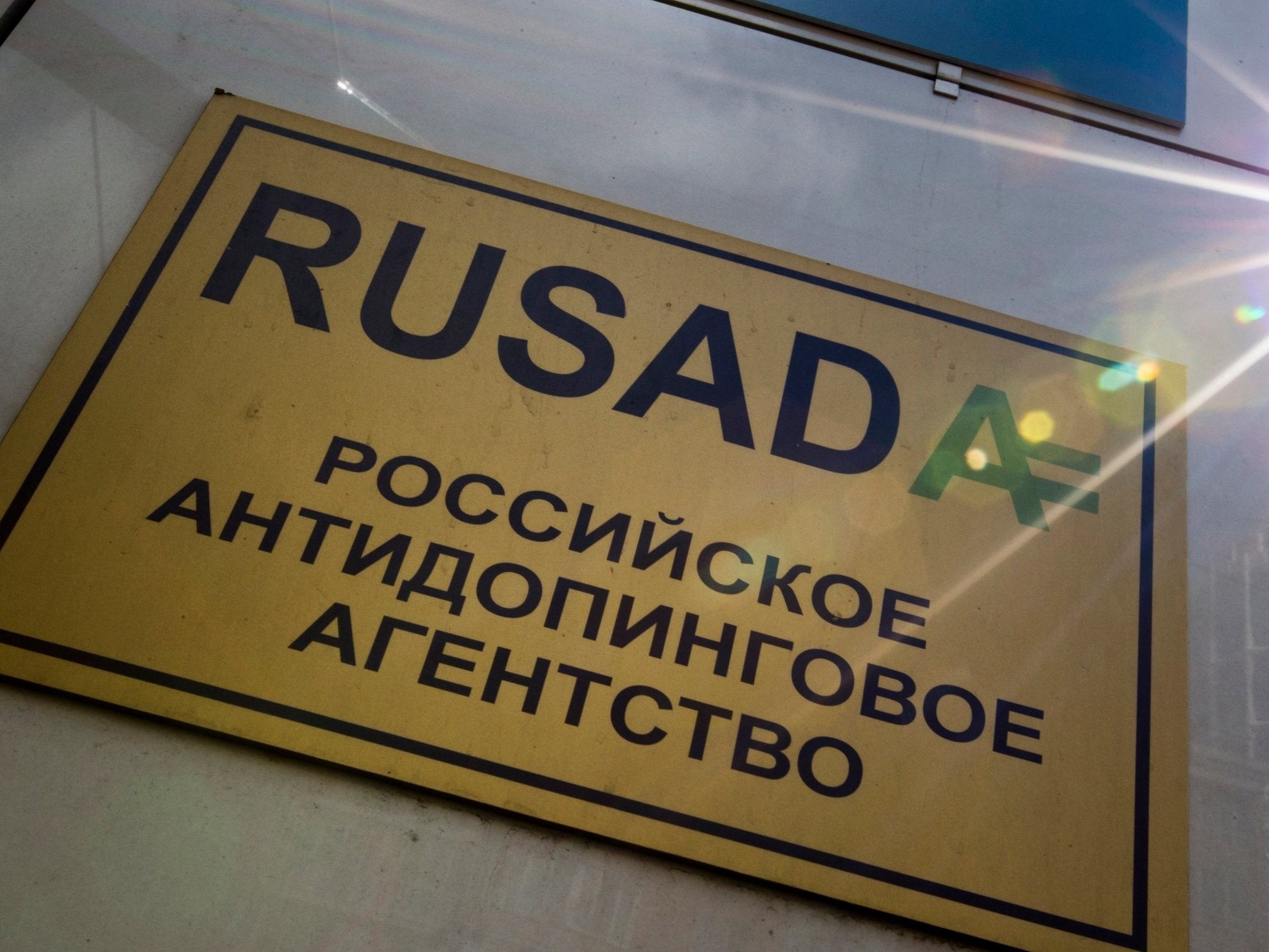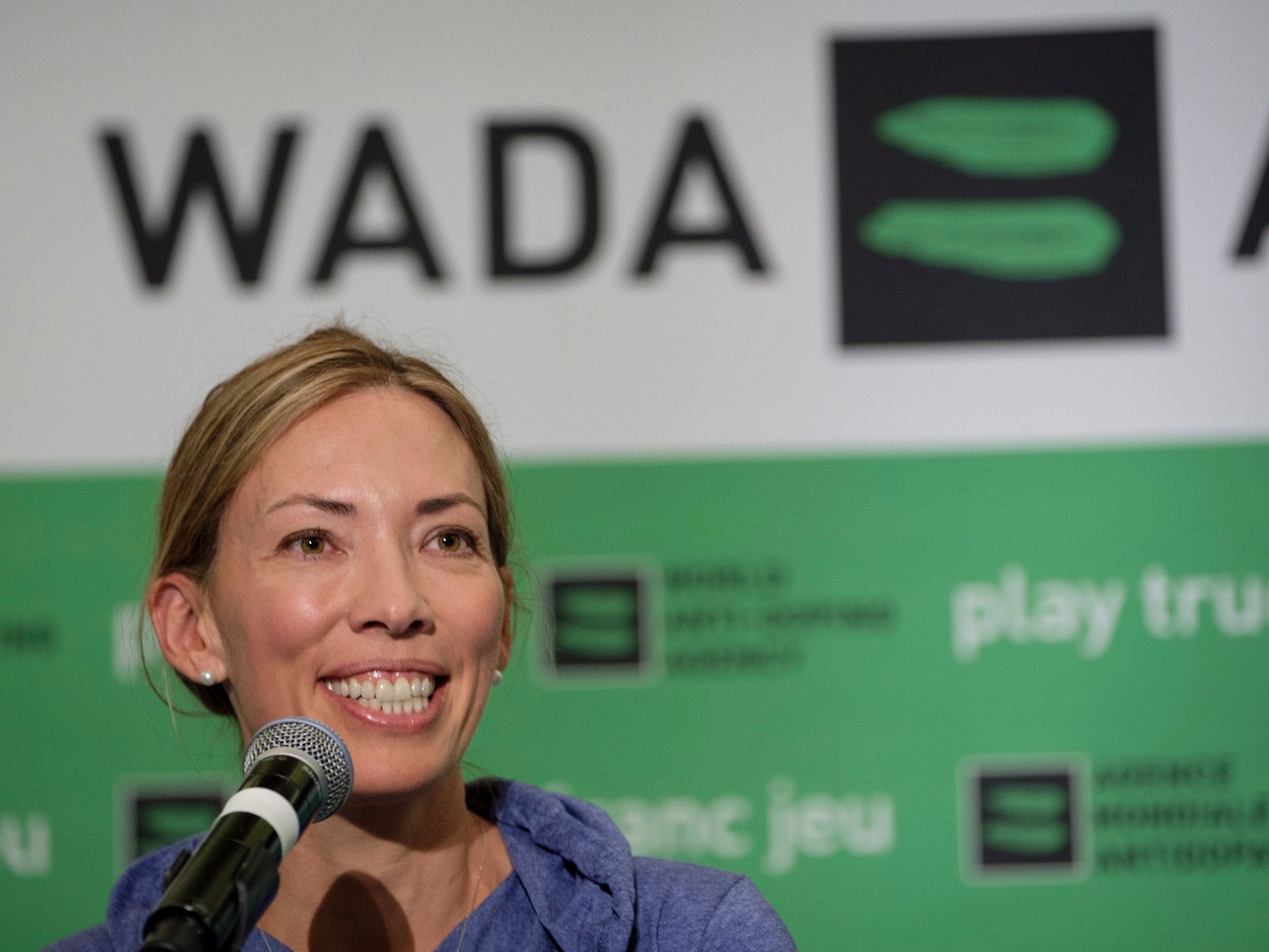Wada reinstates Russian Anti-Doping Agency in defiance of worldwide outcry against disgraced body’s credibility
At a meeting of Wada’s compliance review committee in Seychelles, nine of the 12 members voted in favour of the reinstatement of Rusada, with two voting against and one abstention

Your support helps us to tell the story
From reproductive rights to climate change to Big Tech, The Independent is on the ground when the story is developing. Whether it's investigating the financials of Elon Musk's pro-Trump PAC or producing our latest documentary, 'The A Word', which shines a light on the American women fighting for reproductive rights, we know how important it is to parse out the facts from the messaging.
At such a critical moment in US history, we need reporters on the ground. Your donation allows us to keep sending journalists to speak to both sides of the story.
The Independent is trusted by Americans across the entire political spectrum. And unlike many other quality news outlets, we choose not to lock Americans out of our reporting and analysis with paywalls. We believe quality journalism should be available to everyone, paid for by those who can afford it.
Your support makes all the difference.The World Anti-Doping Agency (Wada) has reinstated the disgraced Russian Anti-Doping Agency (Rusada), defying a worldwide outcry against the proposed move. The decision leaves Wada appearing extremely weak in the face of pressure from the Russian government, which is now free to test its own athletes, issue therapeutic use exemptions and is closer to seeing track and field athletes compete under the Russian flag.
At a meeting of Wada’s compliance review committee in Seychelles on Thursday, nine of the 12 members voted in favour of the reinstatement of Rusada, with two voting against and one abstention. Wada vice-president Linda Helleland was one of those to vote against the decision, stressing in the buildup to the vote that she believed restoring Rusada’s status in the face of its battered reputation undermined the credibility of Wada.

Wada has received criticism from all directions in the anti-doping community, with the UK Anti-Doping Agency (Ukad) among those calling for the vote to be postponed until Russia’s compliance was explicitly clear. The organisation also suffered the resignation of the Canadian IOC member Beckie Scott from its executive committee in protest against the proposal.
However, Wada has gone ahead with the move on account of Rusada complying with a set of watered-down conditions, which had been softened as part of a deal between Wada and the Russian ministry of sport.
These conditions concerned the public acceptance of the McLaren Report and opening the Moscow Laboratory to be investigated. In a letter to Wada, Russia accepted decisions made based on the findings of the Schmid Report, one which backed up the initial McLaren Report but was not as strong in its damning verdict. Rusada’s promises to provide data and access to the lab supposedly met the second criteria.
While many organisations, such as the International Association of Athletics Federations (IAAF) and America’s anti-doping agency (Usad) have spoken out against the move, Wada has been backed by the influential International Olympic Committee (IOC).
Grigory Rodchenkov, the whistleblower now in hiding after detailing Russia’s state-sponsored doping programme, released a statement through his lawyer heavily criticising the move.

“Wada’s decision to reinstate Russia represents the greatest treachery against clean athletes in Olympic history,” the statement read. ”The United States is wasting its money by continuing to fund Wada, which is obviously impotent to address Russia’s state-sponsored doping.
“The only way to stem the tide of Russian corruption is for Congress to pass the Rodchenkov Anti-Doping Act, which will give the Department of Justice the necessary tools to put those engaged in doping fraud behind bars, where they belong.”
Join our commenting forum
Join thought-provoking conversations, follow other Independent readers and see their replies
Comments